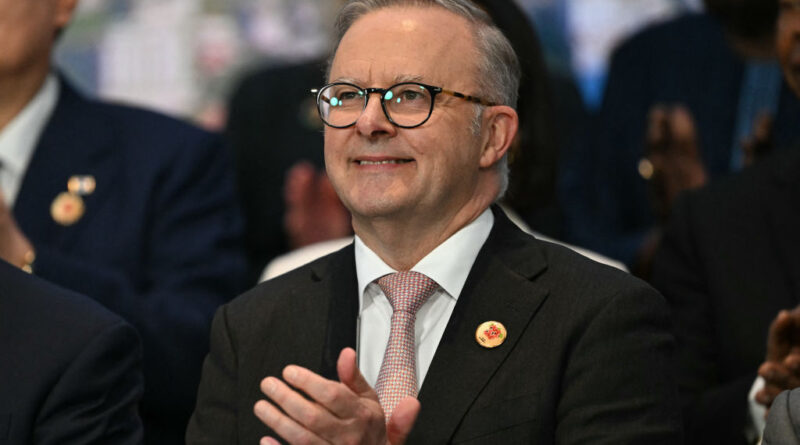Patterson cautions that Government’s ASPI budget reductions may be perceived as giving in to China
The Albanese government has yielded to foreign pressure by implementing funding cuts to an Australian think tank. The decision to defund the think tank known for its critical stance towards Beijing, based on recommendations from the Varghese Review, has caused controversy.
The Varghese Review, tasked with evaluating how the Australian government finances strategic policy work, put forward 14 recommendations to streamline governance, enhance transparency, and prioritize diplomatic channels. On December 19, the government accepted most of the recommendations, which included restructuring the Board of the Australian Strategic Policy Institute (ASPI) and reassessing funding for the Australian American Leadership Dialogue (AALD).
Senator James Patterson expressed unease about the government’s response to the recommendations from the review. He raised concerns that cutting funding to ASPI, especially in response to foreign influence, might convey a message that research critical of China will not be tolerated.
Patterson highlighted ASPI’s influential research on various global issues, such as exposing human rights violations against the Uyghur people in Xinjiang and investigations into foreign interference and cyber-attacks in Australia. He questioned the government on which research it would have preferred not to have been conducted.
Additionally, ASPI’s analysis has been critical of the government’s defense budget cuts. Shadow Minister for Defence Andrew Hastie revealed that the Albanese government had overseen significant reductions and delays in defense capability funding without a clear strategy or spending plan. ASPI’s findings corroborated the need for increased defense spending in Australia urgently.
The Albanese government has chosen to shut down ASPI’s Washington D.C. office by the end of the 2024-25 fiscal year, aligning with a recommendation from the Varghese Review to prioritize foreign policy advocacy through Australian diplomatic channels. Critics fear that this move could weaken Australia’s ability to influence crucial decisions in Washington, particularly concerning projects like AUKUS.
The Varghese Review also called for a substantial overhaul of ASPI’s governance structure. The new model will involve a Council with up to eight members, responsible for appointing the Executive Director in consultation with the Minister for Defence. While the government asserts that these changes will bolster ASPI’s independence and non-partisan research, critics are wary of potential political interference.
Furthermore, the government is reviewing the funding for the Australian American Leadership Dialogue (AALD) beyond its current grant period ending in 2027-28. Future funding will be subject to contributions from the U.S. government and the private sector. The potential shift in AALD’s funding structure raises concerns about the sustainability of the relationship between Australia and the U.S.



